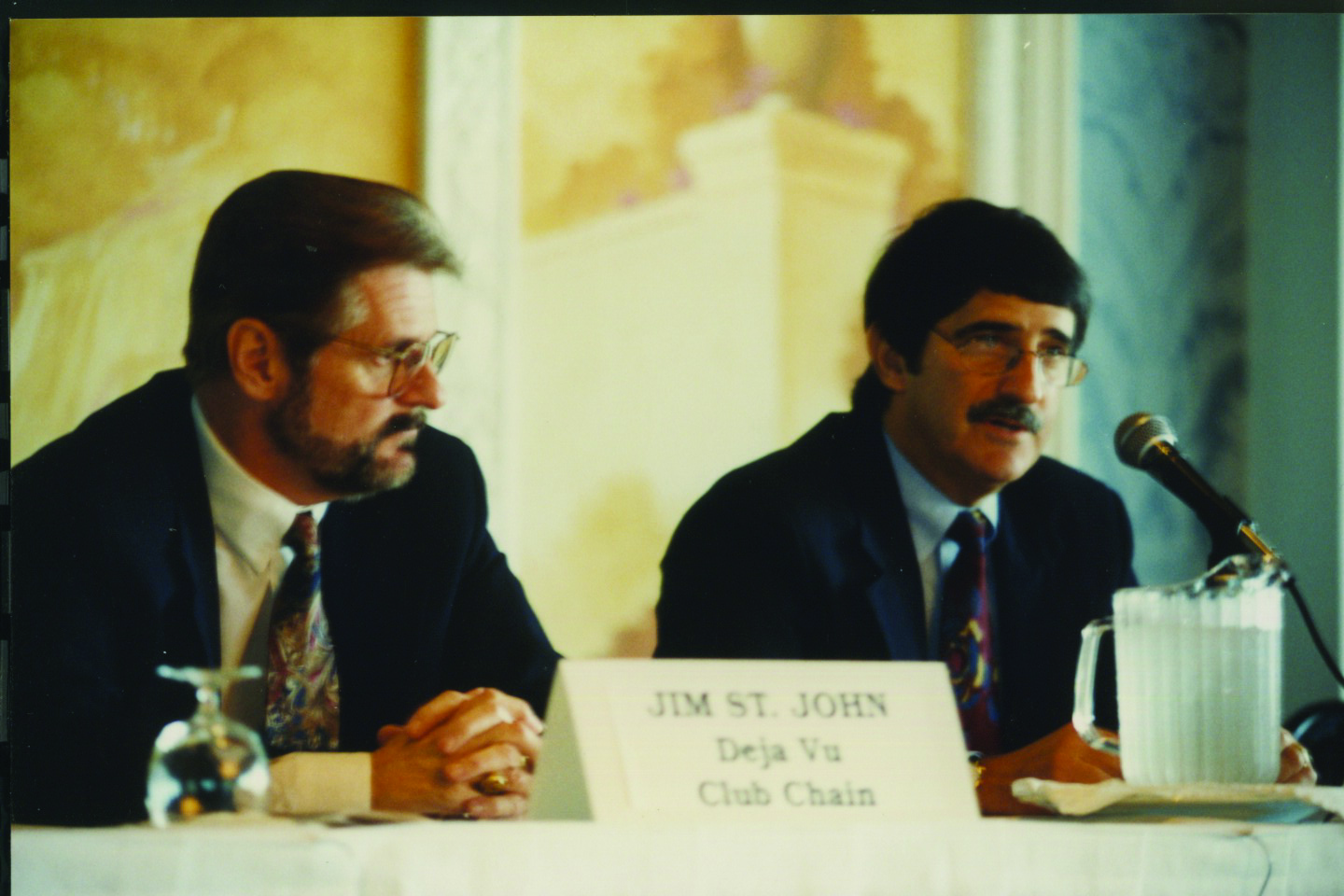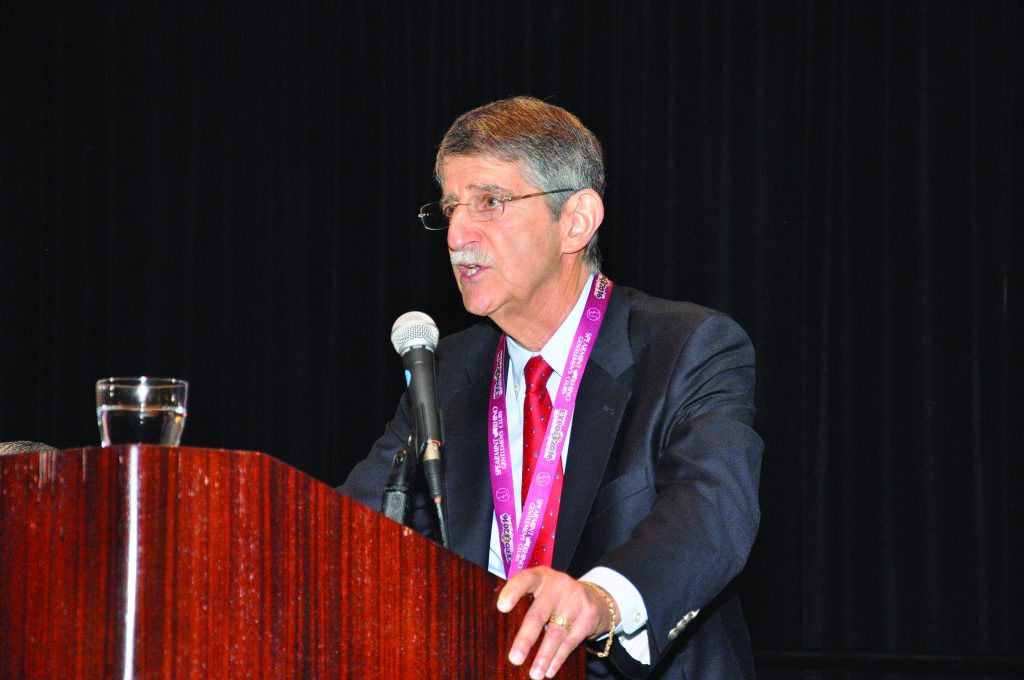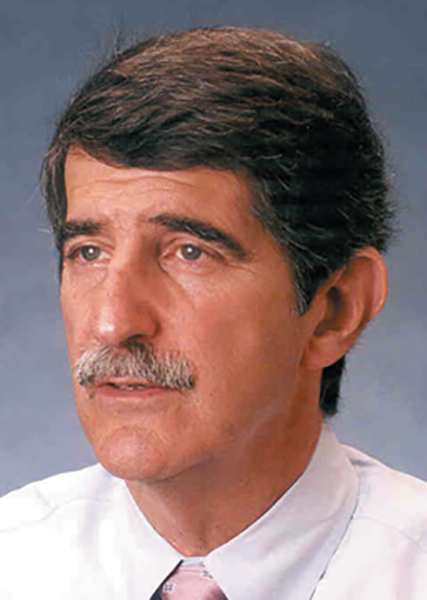- story by Larry Kaplan
Fabled First Amendment attorney John Weston, one of the adult industry’s leading defenders for nearly the entirety of its existence, died of cancer, September 11th, surrounded by his family, friends, and law partners.
Weston was a brilliant, dedicated warrior for free speech with a career spanning over 50 years. Weston devoted his professional life to fighting against censorship and excessive government regulation and ensuring adult businesses’ right to present and all Americans right to enjoy First Amendment-protected activities. Weston was one of four First Amendment attorneys (including Clyde DeWitt, Brad Shafer and Luke Lirot) who were inducted into the ED Hall of Fame in 2010.
Weston’s law partner, Jerry Mooney, talks about his partner’s career and accomplishments.
 “John Weston was one of the nation’s most distinguished First Amendment attorneys,” explains Mooney. “He spent five decades fighting for the important constitutional principle that speech should not be prohibited based upon its message. His lifelong battle against government censorship and government overreach helped establish the firm principle that the expression of ideas, no matter how distasteful, must be treated fairly. John argued seven cases before the United States Supreme Court, and scores of other appellate cases in state and federal courts nationwide, establishing much of the current case law regarding adult media. Through his efforts, he made the freedom of all Americans greater and more secure. He was a great friend and a wonderful human being.”
“John Weston was one of the nation’s most distinguished First Amendment attorneys,” explains Mooney. “He spent five decades fighting for the important constitutional principle that speech should not be prohibited based upon its message. His lifelong battle against government censorship and government overreach helped establish the firm principle that the expression of ideas, no matter how distasteful, must be treated fairly. John argued seven cases before the United States Supreme Court, and scores of other appellate cases in state and federal courts nationwide, establishing much of the current case law regarding adult media. Through his efforts, he made the freedom of all Americans greater and more secure. He was a great friend and a wonderful human being.”
Between 1975 and 2001, Weston went to the U.S. Supreme Court seven times to present oral arguments. The cases were Young v. American Mini Theatres, Inc. (1976); Brockett v. Spokane Arcades, Inc. (1984); Fort Wayne Books, Inc. v. Indiana (1988); FW/PBS, Inc. v. City of Dallas (1990); Alexander v. United States (1993); City of Erie v. Pap’s A.M. (1999); and City of Los Angeles v. Alameda Books, Inc. (2001).
“John Weston was one of the nation’s most distinguished First Amendment attorneys. He spent five decades fighting for the important constitutional principle that speech should not be prohibited based upon its message. His lifelong battle against government censorship and government overreach helped establish the firm principle that the expression of ideas, no matter how distasteful, must be treated fairly. He was a great friend and a wonderful human being.” – Attorney Jerry Mooney
The first of these, Young v. American Mini Theatres, Inc. in 1976, involved two 1972 Detroit adult zoning ordinances, which prohibited adult businesses from locating within 1,000 feet of another adult business or 500 feet of a residential area. The regulations were struck down as unconstitutional by the Sixth Federal Circuit Court, but the City appealed, and the case landed in the Supreme Court. Unfortunately, despite Weston’s spirited oral argument, the Court reversed the Sixth Circuit and upheld the locational restrictions in a 5-4 decision.

“John presented the oral argument in Young, the Supreme Court’s first case to consider the constitutionality of adult zoning laws,” explains Weston’s other legal partner, Randy Garrou. “Although the Court upheld Detroit’s adult zoning ordinance, it did so only after pointing out that it was important that it had no impact on pre-existing businesses and that it would not significantly diminish the opportunity for obtaining locations for establishing future such businesses. For at least a decade, this qualification provided an extremely strong bulwark against enforcement of dozens of municipal attempts to zone these businesses out of existence.”
In the 1999 City of Erie v. Pap’s A.M. case, Erie, Pennsylvania, adopted an ordinance outlawing public nudity and requiring nude dancers at the city’s only adult nightclub, Kandyland, to wear pasties and G-strings. Kandyland’s operator challenged the ordinance, claiming it violated the nude dancers’ First Amendment right to engage in expressive conduct, I.E., free speech. Both the Erie County Court of Common Pleas and the Pennsylvania Supreme Court found in Kandyland’s favor. Erie appealed the case to the Supreme Court.

The Court upheld the ordinance by a 6-3 plurality vote, relying on its United States v. O’Brien (1968) and Barnes v. Glen Theatre Inc. (1991) cases. In its O’Brien ruling, the Court embraced the O’Brien test to determine whether expressive conduct was constitutionally protected. The Barnes ruling allowed the state of Illinois to regulate nude dancing, although it constituted expressive, First Amendment-protected conduct.
In announcing the Court’s ruling in Pap’s and writing the plurality opinion, Justice Sandra Day O’Connor determined that Erie’s nudity ban was permissible because it was not only banned nude dancing per se, but rather public nudity in general. The plurality held Glen Theatre to be controlling. The plurality further noted that nude dancing “falls only within the outer ambit of the First Amendment’s protection.”
“In the Pap’s case,” explains Garrou, “the Supreme Court addressed the constitutionality of an ordinance which banned all public nudity, which necessarily included dancing in adult businesses open to the public. John attempted, unsuccessfully, to get the Court to overrule its prior 1991 decision in Barnes v. Glen Theaters upholding such laws.
The rest of this story will be available in the upcoming November issue of ED Magazine.
Larry Kaplan is the Legal Correspondent for Exotic Dancer Magazine and StorErotica Magazine. Mr. Kaplan is a broker in the sale and purchase of adult nightclubs and adult retail stores and the Executive Director of the ACE of Michigan adult nightclub state trade association. Contact Larry Kaplan at 313-815-3311 or e-mail larry@kaplanclubsales.com





























